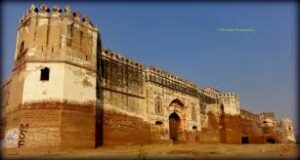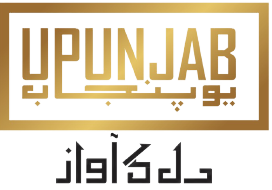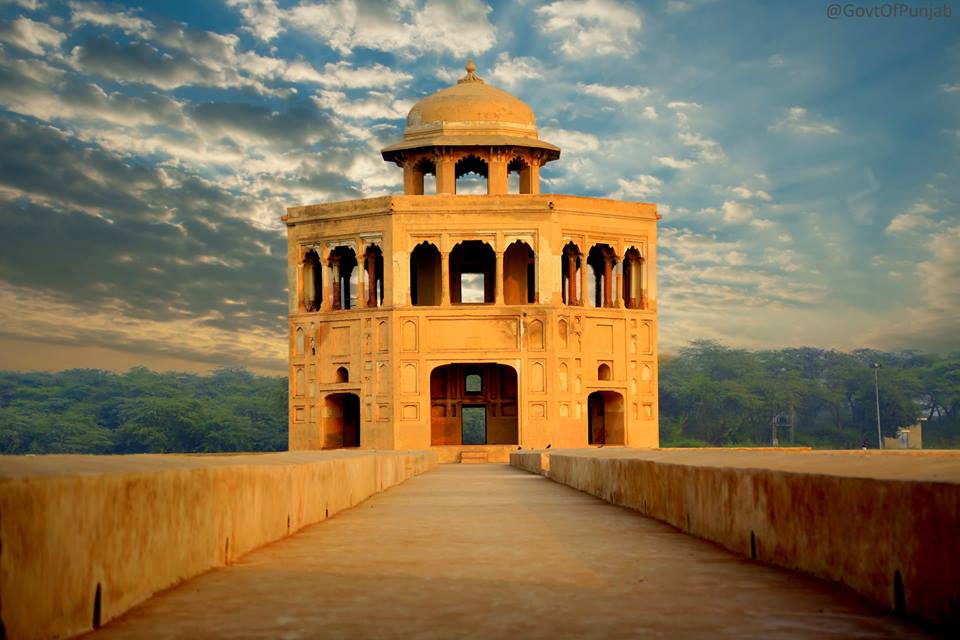
**Introduction:**
Sheikhupura: Where History and Culture Intertwine
Sheikhupura, located in the heart of Punjab, Pakistan, boasts a rich tapestry of history, culture, and heritage.
**Historical Significance:**
Tracing Sheikhupura’s Roots Through History’s Lenses
From Mughal emperors to Sikh rulers, Sheikhupura has witnessed the rise and fall of mighty civilizations, leaving behind a legacy of architectural marvels.
Explore Punjab Culture @UPunjab
**Cultural Diversity:**
A Melting Pot of Cultures: Sheikhupura’s Vibrant Community
The city’s diverse population, comprising Punjabis, Sindhis, and Muhajirs, contributes to its cultural richness and harmony.
**Landmarks and Attractions:**
Exploring Sheikhupura’s Treasures: Must-Visit Landmarks
Sheikhupura Fort, Hiran Minar, and Qila Sheikhupura are among the iconic landmarks that showcase the city’s architectural prowess and historical significance.

**Economic Hub:**
Sheikhupura: A Thriving Center of Commerce and Industry
With its strategic location and thriving industrial sector, Sheikhupura plays a vital role in Pakistan’s economy, particularly in agriculture and manufacturing.
**Cuisine and Delicacies:**
Savoring Sheikhupura’s Culinary Delights: A Gastronomic Journey
From spicy Punjabi curries to delectable sweets, Sheikhupura’s culinary scene tantalizes taste buds and leaves visitors craving for more.
**Frequently Asked Questions (FAQs):**
**1. What is the significance of Sheikhupura Fort?**
The Sheikhupura Fort holds significant historical and architectural importance in Pakistan. Situated in the city of Sheikhupura, in the Punjab province, this fort was constructed during the reign of Emperor Jehangir in the early 17th century.
One of the main reasons for its significance is its association with Mughal history. Emperor Jehangir, who was known for his patronage of art and architecture, ordered the construction of the fort in 1607. It served as a royal residence and a symbol of Mughal power in the region.
The architectural style of the fort reflects the grandeur and opulence of the Mughal era, characterized by intricate carvings, ornate designs, and sturdy construction. It stands as a testament to the engineering and artistic prowess of the Mughal builders.
Throughout its history, the Sheikhupura Fort has witnessed various political events and changes, making it a witness to the region’s historical evolution. Over the centuries, it has been subject to various renovations and restorations, preserving its heritage for future generations.
Today, the fort serves as a tourist attraction, drawing visitors interested in exploring its historical significance and architectural beauty. It also plays a role in cultural events and festivals, further highlighting its importance in Pakistan’s cultural landscape.
**2. How old is the city of Sheikhupura?**
The city of Sheikhupura in Pakistan is believed to have been founded around 1607 AD during the reign of Emperor Jahangir of the Mughal Empire. So, as of 2024, Sheikhupura would be around 417 years old.
**3. What are the main industries in Sheikhupura?**
Sheikhupura, a city in Punjab, Pakistan, has several key industries driving its economy. Some of the main industries in Sheikhupura include:
- Agriculture: Sheikhupura is known for its fertile land and agricultural productivity. The region produces crops such as wheat, rice, sugarcane, citrus fruits, and vegetables.
- Textiles: The textile industry is significant in Sheikhupura, with many textile mills engaged in spinning, weaving, and garment manufacturing.
- Ceramics: Sheikhupura has a notable ceramics industry, including the production of tiles, sanitary ware, and pottery.
- Pharmaceuticals: The pharmaceutical industry has a presence in Sheikhupura, manufacturing various pharmaceutical products and medicines.
- Dairy: Sheikhupura has a thriving dairy industry, with numerous dairy farms and milk processing facilities.
- Engineering: There are engineering and manufacturing units in Sheikhupura involved in producing machinery, equipment, and automotive parts.
- Food processing: Food processing is another important industry in Sheikhupura, with companies involved in the processing and packaging of food products such as snacks, beverages, and confectionery.
These industries contribute significantly to the economy of Sheikhupura and provide employment opportunities for its residents.

**4. Can tourists visit Hiran Minar?**
Yes, tourists can visit Hiran Minar. Hiran Minar, located near Sheikhupura, Pakistan, is a popular tourist attraction. It’s a historic site known for its distinctive architecture and scenic surroundings. Visitors can explore the site, admire the minaret, and enjoy the picturesque views of the surrounding area.
**5. What festivals are celebrated in Sheikhupura?**
In Sheikhupura, Pakistan, various festivals are celebrated throughout the year, reflecting the cultural and religious diversity of the region. Some of the major festivals celebrated in Sheikhupura include:
- Eid al-Fitr: This festival marks the end of Ramadan, the holy month of fasting for Muslims. It is celebrated with great enthusiasm, including special prayers, feasting, and giving of gifts.
- Eid al-Adha: Also known as the Festival of Sacrifice, Eid al-Adha commemorates the willingness of Ibrahim (Abraham) to sacrifice his son as an act of obedience to God. Muslims celebrate by sacrificing animals, usually sheep, goats, or cows, and distributing the meat to family, friends, and the less fortunate.
- Basant: Basant is a traditional Punjabi festival that marks the arrival of spring. It is celebrated with kite flying, music, and dance. However, it’s worth noting that the celebration of Basant has been controversial in recent years due to safety concerns related to kite flying and has been banned at times by local authorities.
- Mawlid al-Nabi: This festival commemorates the birth of the Islamic prophet Muhammad. It is observed with prayers, readings from the Quran, and communal meals.
- Independence Day: Pakistan’s Independence Day is celebrated on August 14th each year, commemorating the country’s independence from British rule in 1947. The day is marked with flag hoisting ceremonies, parades, cultural events, and patriotic fervor.
- Republic Day: Republic Day in Pakistan is celebrated on March 23rd, commemorating the adoption of the Pakistan Resolution in 1940, which led to the creation of the Islamic Republic of Pakistan. The day is celebrated with flag hoisting ceremonies, parades, and cultural events.
These are just a few examples of the festivals celebrated in Sheikhupura. The exact festivities and celebrations may vary depending on cultural, religious, and community traditions.
**6. Are there any famous historical figures associated with Sheikhupura?**
One of the notable historical figures associated with Sheikhupura is Emperor Jahangir, who ruled the Mughal Empire in the early 17th century. Jahangir was known for his patronage of the arts and his keen interest in architecture. He ordered the construction of the Hiran Minar, a distinctive tower located in Sheikhupura, in memory of his beloved pet deer, Mansraj. The Hiran Minar stands as a testament to Jahangir’s architectural legacy and continues to attract visitors to Sheikhupura to this day.
**7. What is the local language spoken in Sheikhupura?**
The local language spoken in Sheikhupura, Pakistan, is primarily Punjabi.
**8. Are there any traditional crafts unique to Sheikhupura?**
Sheikhupura, a city in the Punjab province of Pakistan, has a rich cultural heritage with several traditional crafts unique to the region. One such craft is the art of ‘Sheikhupuri pottery’.
Sheikhupuri pottery is known for its intricate designs and vibrant colors. Skilled artisans in Sheikhupura create various pottery items such as bowls, vases, and decorative pieces using traditional techniques passed down through generations. The pottery often features geometric patterns, floral motifs, and intricate hand-painted designs, making each piece a work of art.
Another traditional craft from Sheikhupura is ‘Sheikhupuri embroidery’. Skilled artisans in the region practice intricate embroidery techniques to create beautiful designs on fabric. Commonly used stitches include the ‘rukha’ stitch, ‘phanda’ stitch, and ‘jaal’ embroidery, which result in exquisite patterns adorning clothing items like shalwar kameez, dupattas, and bed linens.
These traditional crafts not only showcase the artistic talent of the people of Sheikhupura but also contribute to the preservation of their cultural heritage.
**9. Is Sheikhupura accessible by public transportation?**
Yes, Sheikhupura is accessible by public transportation in Pakistan. It is well-connected by buses, vans, and rickshaws from nearby cities and towns. The public transportation network allows people to travel to and from Sheikhupura conveniently.
**10. What are some popular recreational activities in Sheikhupura?**
Sheikhupura, a city in the Punjab province of Pakistan, offers various recreational activities for its residents and visitors. Some popular recreational activities in Sheikhupura include:
- Visiting Hiran Minar: This historical site features a large tower built in the 17th century, surrounded by a scenic park. Visitors can enjoy picnics, walks, and exploring the historical significance of the area.
- Shopping at local markets: Sheikhupura has bustling markets where visitors can shop for traditional Pakistani goods, including clothes, handicrafts, and spices. Anarkali Bazaar and Sheikhupura Bazaar are popular destinations for shoppers.
- Exploring Sheikhupura Fort: This historic fort, also known as Qilla Sheikhupura, offers a glimpse into the region’s past. Visitors can explore the fort’s architecture, learn about its history, and enjoy the surrounding gardens.
- Golfing at Sheikhupura Golf Club: Golf enthusiasts can enjoy a round of golf at the Sheikhupura Golf Club. The club offers well-maintained courses and facilities for players of all skill levels.
- Dining at local restaurants: Sheikhupura boasts a variety of restaurants (especially Jallandhry Chatkhara ) offering delicious Pakistani cuisine, including traditional dishes like biryani, kebabs, and nihari. Visitors can sample local flavors and enjoy the vibrant dining scene.
- Wildlife Safari at Changa Manga Forest: Located near Sheikhupura, Changa Manga is one of the largest man-made forests in Pakistan. Visitors can explore the forest’s trails, go birdwatching, and enjoy a wildlife safari.
- Relaxing at Sheikhupura Club: The Sheikhupura Club provides a serene environment for relaxation and socializing. Visitors can enjoy amenities such as swimming pools, sports facilities, and lush greenery.
These are just a few examples of the recreational activities available in Sheikhupura. Whether you’re interested in history, outdoor adventures, or simply relaxing, Sheikhupura has something to offer for everyone.
**11. Are there any religious sites of significance in Sheikhupura?**
Yes, there are several religious sites of significance in Sheikhupura, Pakistan. One notable site is the Hiran Minar, which was built in the 17th century by Emperor Jahangir in memory of his beloved pet deer. It is a unique blend of Islamic and Hindu architectural styles and is considered a cultural and historical landmark in the region.
Another important religious site in Sheikhupura is the Shrine of Saint Safiuddin Abdul Wahab, commonly known as Sheikh Safi. This shrine attracts devotees from across the country, especially during annual Urs celebrations, to pay their respects and seek blessings.
Furthermore, Sheikhupura is home to various mosques and shrines that hold religious significance for the local population, contributing to the religious and cultural landscape of the city.
**Conclusion:**
Sheikhupura: Where the Past Meets the Present in Harmony




